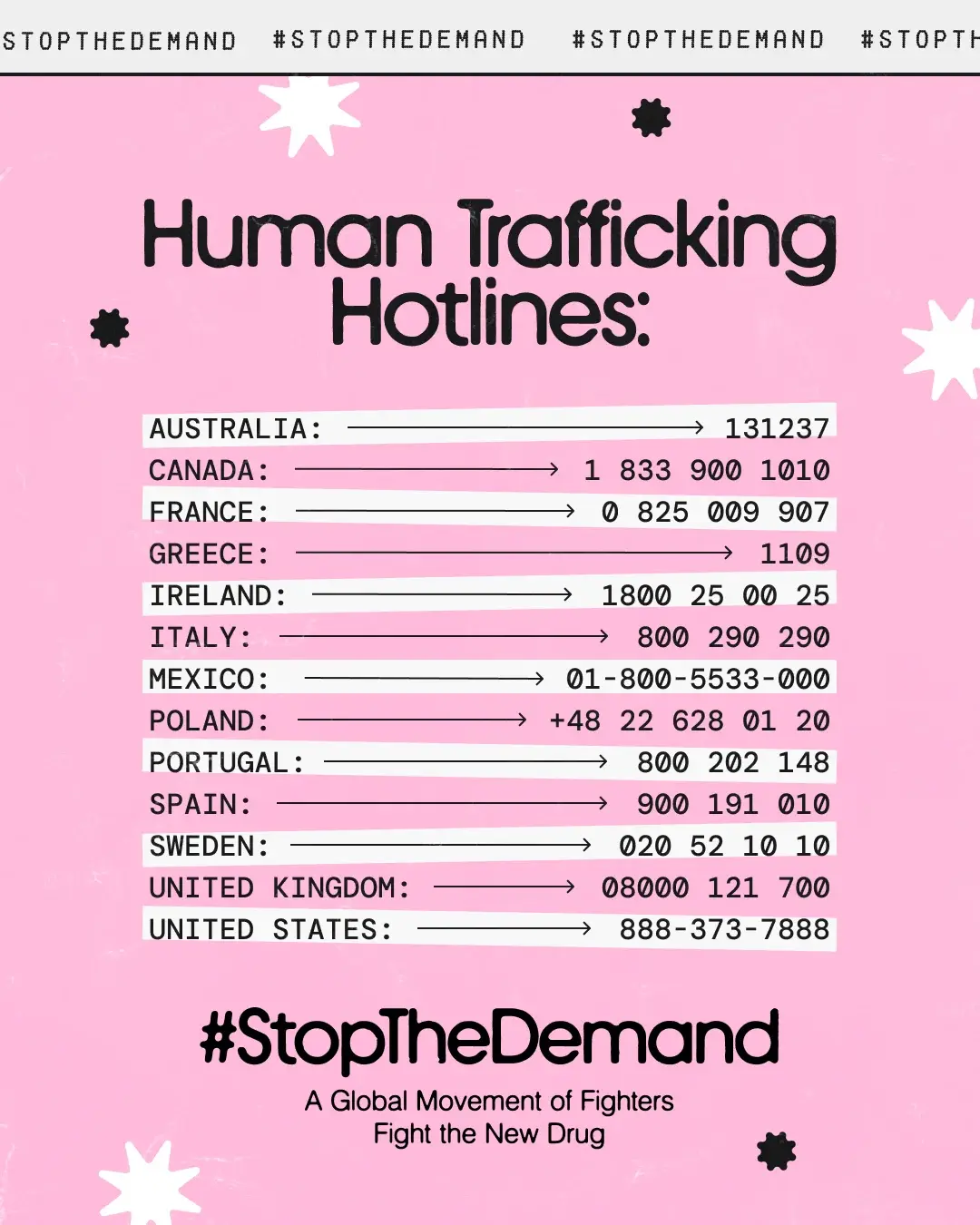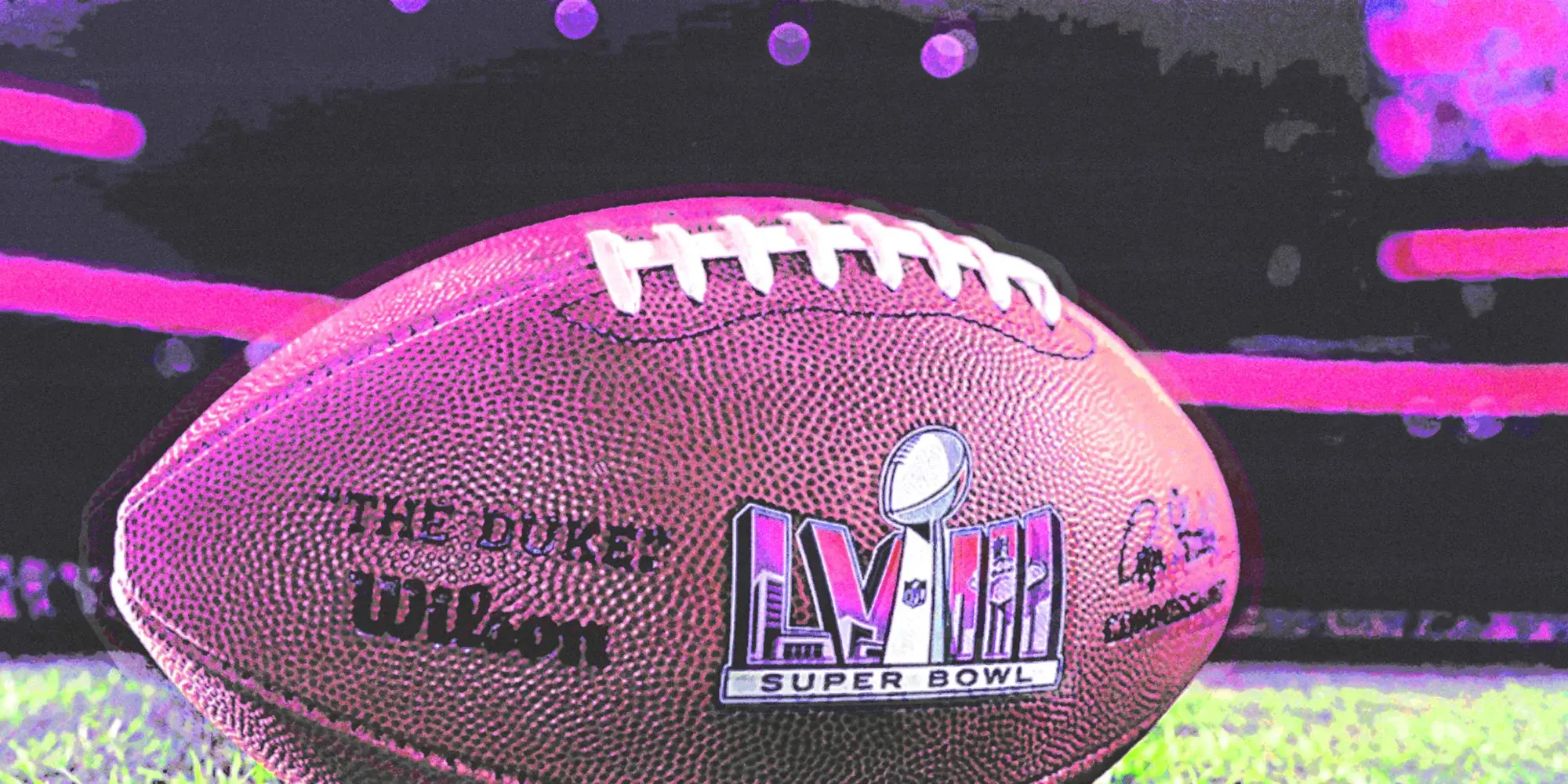All eyes are on the upcoming matchup between the San Francisco 49ers and the Kansas City Chiefs in Super Bowl LVIII (plus, many viewers hope to catch a glimpse of Taylor Swift in attendance at the big game).
But there’s another billion-dollar industry that needs increased awareness not just now but every day of every year—sex trafficking.
Large events like the Super Bowl have long been a hub for trafficking and exploitation—with traffickers and buyers taking advantage of football’s biggest weekend and the massive crowds it attracts.
However, human trafficking happens every day in every state and country across the globe. After the Super Bowl is over, the same traffickers are going to wake up on Monday and do the same things to their victims. But will society quickly forget about this ever-prevalent issue as soon as game day is over?
Of course, exploitation doesn’t exclusively happen on Super Bowl Sunday. However, this event increases tourism and presents significant risk factors. So what are local authorities and organizations in Las Vegas, Nevada, doing to combat what research shows is a very likely spike in human trafficking surrounding events like Super Bowl LVIII?
Anti-trafficking organization Polaris says, “While traffickers are savvy business people and go where the demand is, they also know where law enforcement is focusing their efforts and are constantly changing their tactics. Over the last few years, law enforcement agencies have significantly increased the resources they allocate to combating human trafficking leading up to and during the game.”
Efforts in Las Vegas to fight trafficking
This will be Las Vegas’ first time hosting the big event; officials expect it to draw in more than 330,000 visitors. According to the World Population Review, Nevada has the second-highest rate of human trafficking in the country.
The phrase “What happens in Vegas stays in Vegas” promotes a fantasy of no repercussions. Local authorities and organizations are working to overcome this perception.
Signs of Hope, a nonprofit, supports survivors of sexual violence and human trafficking. They’ve partnered with the Las Vegas Metropolitan Police Department to address the expected increase in trafficking and aid victims, especially vulnerable women and children. Their hotlines are available around the clock:
24/7 Sexual Assault Crisis Hotline: 702-366-1640
24/7 Human Trafficking Hotline: 702-936-4004
CEO of Signs of Hope Kim Small said in a recent interview, “When large events come to Las Vegas, we see a rise in these numbers.”
She also emphasized that the issue extends far beyond the Super Bowl or other large events. Wherever there’s a large population of people and disposable income, it’s naturally going to attract human trafficking. And in areas like Las Vegas, which are tourist, event, and entertainment destinations, trafficking is, unfortunately, a byproduct.
“It’s a daily problem that we encounter here in Southern Nevada. We rank in the top three in the nation for human trafficking, both sexual trafficking and labor trafficking.”
Deputy Chief Nick Farese of the Las Vegas Metropolitan Police Department shared in a recent interview, “This is something that isn’t just unique to the Super Bowl. And our stance is this happens every day, seven days a week, 24 hours a day, 365 days a year. We are trying to use the Super Bowl event to bring awareness to the community because while a big event brings people in, Las Vegas has big events and hosts big events every day and week.”
Jessica Kay, a sex trafficking survivor and social worker, was trafficked in Las Vegas. She now works closely with local organizations and authorities to help combat trafficking. She describes how Las Vegas is a particular hotspot for trafficking and that some traffickers even bring their boys to Vegas from out of state to teach them how to pimp because it’s “easier and part of the culture.”
“CES, big conventions, Formula 1, boxing matches, those were things that we went to, our trafficker would take us to, to make more money and capitalize on those opportunities.”
During a recent Las Vegas Formula 1 event, local authorities reportedly arrested 70 people in relation to sex trafficking as part of an operation.
Jessica continued, ‘My trafficker used to withhold food. We weren’t allowed to eat at all. No food was kept in our house until we hit our quota, which was $2,500 a night for me. And so the only way I could eat was if a buyer happened to buy me food.”
Bellhops and security guards frequently sold her at hotels. Trafficking, she says, is deeply embedded in the hotel system in Las Vegas.
“When higher rollers are coming in looking for women and children, and somebody who works in the casino knows how to get them, they will also make money off the transaction. So if I would get a buyer through a concierge or a security guard, they would get part of my payment when I left the hotel.”
Many hotels and casinos are cooperating with local authorities and Signs of Hope to train their front and back house staff—particularly how to look for and identify warning signs of potential trafficking victims.
Victim-centered operations
Small and Farese emphasized the importance of focusing on a victim-centered approach in their operations.
Deputy Farese says that their operations offer victims an opportunity to escape to a different way of life—be it transportation or travel, shelter, or medical resources. They aim to help victims know what’s available and that authorities are there when they’re ready.
The Las Vegas Metropolitan Police Department collaborates with the Southern Nevada Human Trafficking Task Force. They conduct monthly stand-down events focused on outreach, with no arrests or citations.
Stand-down events provide medical resources, clothing, and food at one location. Licensed clinical social workers are also present to offer support. Farese says they sometimes see the same people repeatedly, building trust over time.
Authorities also work with local organizations like Signs of Hope to train hotels, security and casino workers, airport staff, baristas, and others to identify signs of trafficking and say something to the proper authorities.
Vulnerabilities and warning signs
Kim Small says there are individuals who call themselves “voluntary sex workers” and oppose these kinds of operations. However, she disagrees. Jessica Kay said that while she was being trafficked, she likely would have argued it was her choice. It wasn’t until five years later, when she’d escaped from her trafficker and was getting her master’s degree at the University of Southern California that she recognized she had been a victim.
“The buying of women and children isn’t an occupation or a hobby. It’s a violation. In my opinion, I think that people engaging in consensual sex work is a trauma response. Many sex workers are victims of human trafficking. Many know that. And I also think sometimes they think this is their only pathway out. I think the amount of violence that I experienced, both from my trafficker as well as buyers—they need to be held accountable. And I think most victims would feel the same way.”
Kay emphasizes the importance of a victim-centered approach in law enforcement. It may take multiple interactions before victims are ready to seek help and escape their traffickers.
Raising awareness about grooming and trafficking is crucial. It occurs within families, on devices, on social media, and even in school systems.
If you see something, say something
The National Human Trafficking Hotline has put together a list of common “signs” that a person might be in a trafficking situation. Check it out here.
Hotlines

The National Human Trafficking Hotline operates 24/7. It responds to tips of possible trafficking and assists victims reaching out for help.
You can call 1-888-373-7888 any time. You can also text 233733 anytime or chat live on their website. Advocates on the other end coordinate with the best resources. If needed, they involve local law enforcement and investigators. Additionally, they collaborate with service provider partners to address victims’ needs.
You can also reach out to Signs of Hope in the Las Vegas area:
24/7 Sexual Assault Crisis Hotline: 702-366-1640
24/7 Human Trafficking Hotline: 702-936-4004
If you see something, say something and contact the proper authorities. Trafficking happens every day in every state and country worldwide, and your efforts can make an impact.
Take a stand against porn’s harm and become a Fighter today.
Your Support Matters Now More Than Ever
Most kids today are exposed to porn by the age of 12. By the time they’re teenagers, 75% of boys and 70% of girls have already viewed itRobb, M.B., & Mann, S. (2023). Teens and pornography. San Francisco, CA: Common Sense.Copy —often before they’ve had a single healthy conversation about it.
Even more concerning: over half of boys and nearly 40% of girls believe porn is a realistic depiction of sexMartellozzo, E., Monaghan, A., Adler, J. R., Davidson, J., Leyva, R., & Horvath, M. A. H. (2016). “I wasn’t sure it was normal to watch it”: A quantitative and qualitative examination of the impact of online pornography on the values, attitudes, beliefs and behaviours of children and young people. Middlesex University, NSPCC, & Office of the Children’s Commissioner.Copy . And among teens who have seen porn, more than 79% of teens use it to learn how to have sexRobb, M.B., & Mann, S. (2023). Teens and pornography. San Francisco, CA: Common Sense.Copy . That means millions of young people are getting sex ed from violent, degrading content, which becomes their baseline understanding of intimacy. Out of the most popular porn, 33%-88% of videos contain physical aggression and nonconsensual violence-related themesFritz, N., Malic, V., Paul, B., & Zhou, Y. (2020). A descriptive analysis of the types, targets, and relative frequency of aggression in mainstream pornography. Archives of Sexual Behavior, 49(8), 3041-3053. doi:10.1007/s10508-020-01773-0Copy Bridges et al., 2010, “Aggression and Sexual Behavior in Best-Selling Pornography Videos: A Content Analysis,” Violence Against Women.Copy .
From increasing rates of loneliness, depression, and self-doubt, to distorted views of sex, reduced relationship satisfaction, and riskier sexual behavior among teens, porn is impacting individuals, relationships, and society worldwideFight the New Drug. (2024, May). Get the Facts (Series of web articles). Fight the New Drug.Copy .
This is why Fight the New Drug exists—but we can’t do it without you.
Your donation directly fuels the creation of new educational resources, including our awareness-raising videos, podcasts, research-driven articles, engaging school presentations, and digital tools that reach youth where they are: online and in school. It equips individuals, parents, educators, and youth with trustworthy resources to start the conversation.
Will you join us? We’re grateful for whatever you can give—but a recurring donation makes the biggest difference. Every dollar directly supports our vital work, and every individual we reach decreases sexual exploitation. Let’s fight for real love:





